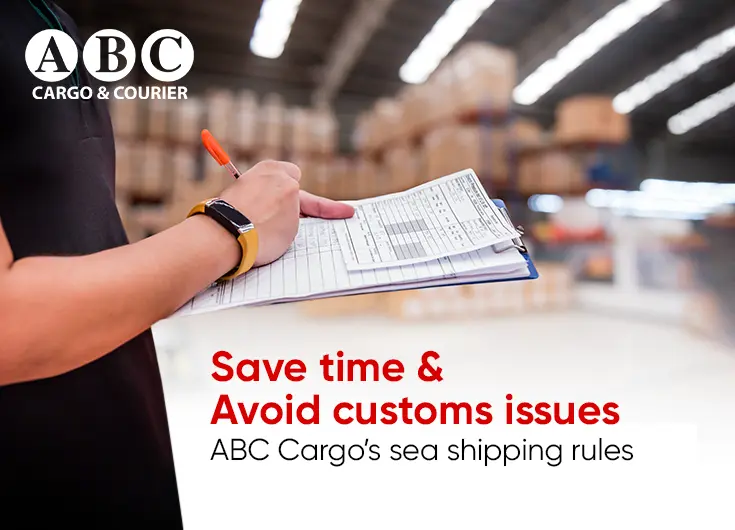As complex as shipping goods internationally is, running an international shipping business is more complex. There is a lot to be done and even more to be thought about—air freight, packaging, cargo insurance, customs clearance, necessary documentation, freight forwarders, and so on and so on; the list just goes on. Each of these steps requires coordination and compliance, not to mention the constant fluctuations that happen now and then in global regulations, geopolitical tensions, port delays, and shifting fuel costs, all of which can highly disrupt even the most well-planned routes. The most important thing among them is maintaining a study and dependable cost amidst the rising regulations, logistics issues, and other barriers. It is what defines trust in the eyes of clients and long-term sustainability in the market.
Companies that depend on international trade not only have to deal with cost limitations, customs laws, and transportation delays but also remain vigilant to any such fluctuations in the market that could affect them directly or otherwise. The main expenses associated with international shipping are freight costs, customs charges, packaging costs, and insurance, apart from other hidden charges that often come along the way.
Major Challenges in International Shipping and Their Impact on Costs
- High Fuel Prices and Freight Charges: Freight charges are hands down the largest costs in global shipping. They usually vary based on different external factors such as fuel prices, demands, etc., for air and sea freights. Shipping during peak seasons or any unexpected interruptions in the supply chain can make freight hike even more. Businesses might need to sit down for a talk before making huge bookings to try and negotiate bulk shipping rates to get away with minimal expenses.
- Customs Clearance and Regulatory Compliance: There are rules and regulations to look upon while dealing with customs clearance for each country, and these may vary from country to country or region to region. The documentation, taxation, etc., work differently in different regions. Failing to keep up with these rules may lead to potential clearance delays, fines, and even in some cases, extra charges. Therefore, it is essential to have direct experience working alongside or with a skilled freight forwarder who has been in the industry for at least quite a few years.
- Cargo Insurance and Risk Management: In some cases, it was tough for a cargo to be delivered to its intended destination without experiencing any sort of mishandling theft, accident, etc. In all such cases, the customer mostly files a claim for their insurance, provided they have one, and that would be the end of the story. But if there is no cargo insurance to rely upon, companies can experience the turbulence, with all its severity, and fall for the financial losses because of anything from damage, theft, or unexpected delays that could be the direct result of weather, man-made causes, or a combination of both. Insurance coverage helps companies recover their losses and smoothen any disruption in the supply chain.
- Packaging and Handling Costs: Packing is often deemed less important, but it could be a major source of cost reduction if done right. Inefficient packaging could bring about a huge shipping charge, not to mention the case of any product damage, which could mean more money to be spent to fix this. Large or heavy packaging increases the cost of freight, while weak packaging could lead to damage. Moderation is the answer. Using lightweight yet durable materials can save a lot of money while preventing any damage that could ruin your shipments.
- Freight Forwarders and Logistics Coordination: To have coordinated shipping is to have optimized business spend, as reliable freight forwarders and cargo service providers are quintessential for smooth shipping operations. Any kind of inefficiency among suppliers, transporters, and warehouses can result in delays that put you through a lot of damage and higher costs. The solution here would be to hire skilled logistics providers who can optimize routes, consolidate shipments, and clear customs without difficulty.
Effective Strategies to Cut International Shipping Costs
- Collaborate with Trusted Freight Forwarders:
The first thing to do would be to collaborate with freight forwarders, who have hands-on experience in shipping goods across borders, managing paperwork for it, etc. This way you save a lot of money as well as your valuable time while ensuring you are guaranteeing better logistics operations.
- Maximize Cargo Insurance Policies:
Rather than taking just any insurance policy or not taking one at all, companies ought to evaluate their requirements first and get hold of an insurance policy that gives sufficient coverage at an affordable rate.
- Utilizing Air Freight and Alternative Transportation:
While air freight is the fastest way to ship anything across the ocean, it comes with a higher price. The best option would be to opt for sea freight, and if it’s inconvenient, then the next best option would be taking a hybrid of air, sea, and ground transport. This would lower the costs significantly.
- Digitizing Required Documents for Speedier Processing:
Manually processing shipping documents can take a huge chunk of time and energy to get things done and could result in errors and delays. Automated documentation systems are the way to go, as they guarantee that all documents are correct and will be submitted on time. Digital platforms and software make the job easier and more coordinated.
- Sustainability Efforts in Shipping:
Although not completely in fashion, decreasing environmental footprint has become a global priority in shipping in recent decades. Sustainability can be achieved to an extent if efforts like utilizing energy-efficient transportation, green packaging, and electronic documentation are taken. More than anything else, this move would boost the reputation of your company to great extents.
How Technology Improves International Shipping Efficiency
Technology has changed the way international shipping works by not only improving efficiency but also by simplifying the handling of documents, improving communication, and reducing delays. The most widely applied tool is probably digital shipping platforms, through which businesses can book cargo, track shipments, and manage freight documents from a single interface from anywhere in the world. They save time, cutting out several manual steps and moving the complexities that come with it.
Incorporating simple yet powerful methods like barcode scanning technology, etc., can bring about a huge difference. It can bring about accurate labeling and tracking of shipments, thereby reducing any likelihood of lost or misplaced freight. Generating automated SMS and email notifications for shipments is another such method that could elevate working conditions and improve cost efficiency as these technologies help inform stakeholders in real time and simplify coordination among customers, freight forwarders, and suppliers. Electronic invoicing and online customs filing are other options to speed up clearance and minimize paper-based errors.
Frequently Asked Questions (FAQ)
1. What is international shipping?
In simple words, international shipping is transporting cargo across borders utilizing air freight or sea freight.
2. What documents are required for international shipments?
Commercial invoices, customs declarations, and insurance documents are a few examples of the kind of documents you will need to ship internationally without delays and disruptions.
3. What is to be done for customs clearance?
Freight forwarders and cargo service providers like ABC Cargo & Couriers arrange for necessary paperwork to be completed and for local regulation compliance. They assist companies with an understanding of tax liabilities, import/export limitations, and duty charges.
4. Can I trace my shipment?
Yes, real-time tracking by digital platforms is available through most cargo service providers like ABC Cargo & Couriers. GPS and IoT technology send updates on the status of shipment, estimated delivery time, and potential delays.
5. How are cargo security measures taken?
Cargo insurance, secure packaging, and tracking systems ensure the safe delivery of cargo. Quality checks every now and then, correct methods of loading goods, and sending sensitive items by climate-controlled containers also add security.
6. What are your sustainability practices in international shipping?
Simple sustainability measures like the use of fuel-efficient transportation, biodegradable packaging, and electronic documentation, if done right, could largely minimize the environmental footprint.





